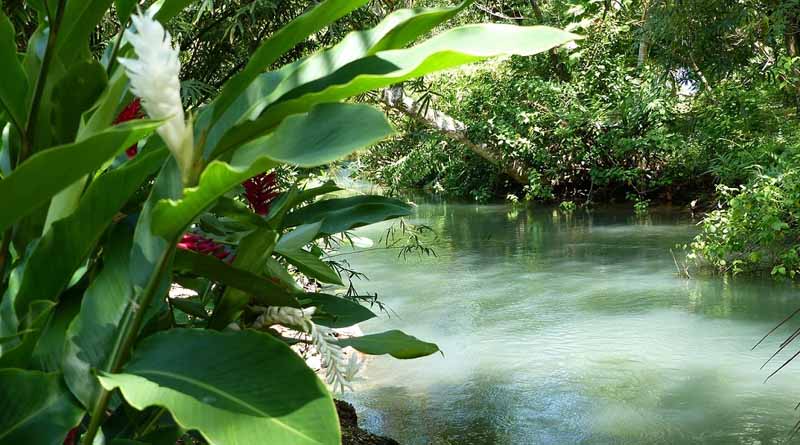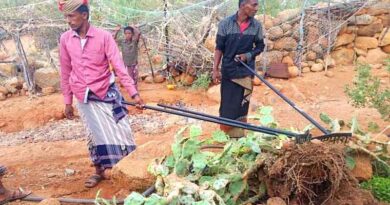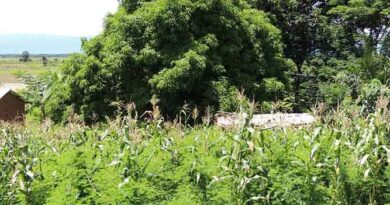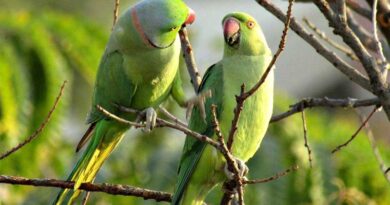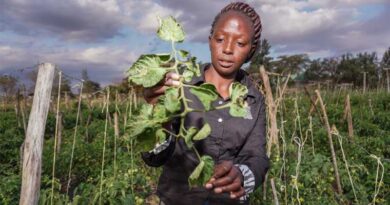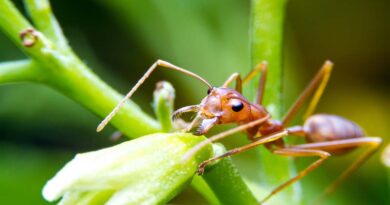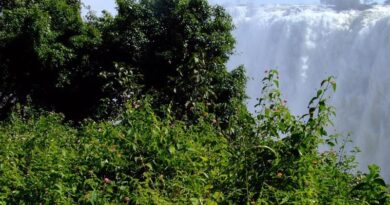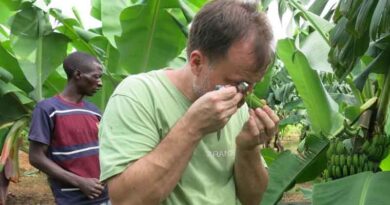CABI Publishes First Guide to the Naturalized and Invasive Plants of the Caribbean
15 April 2024, US: CABI has published the first ‘Guide to the Naturalized and Invasive Plants of the Caribbean’ which includes aquatics, climbers, grasses, herbs, shrubs, succulents, and trees that threaten biodiversity, livelihoods and economic development.
The 384-page guide, by Dr Arne Witt, CABI’s Invasives Coordinator, South, details 100 of the more than 880 naturalized and invasive alien plant species that have been recorded in the Caribbean – providing information on key characteristics to assist in identification. It is supported by ca 5,000 colour images, and information on origin, uses, impacts (gleaned from the international literature), and management options.
The introduction provides detailed guidance on best management practices while the appendices provide summary information (growth form, origin, and uses) on the more than 880 species recorded in the region, while others provide detailed information on biological control agents, and herbicides that could be used for their control.
The publication is an output from the Global Environment Facility (GEF) funded project, “Preventing the COSTS of Invasive Alien Species (IAS) in Barbados and the OECS” which is implemented by the United Nations Environment Programme (UNEP) and executed by CABI, in partnership with the Governments of Antigua and Barbuda, Barbados, Grenada, Dominica, St. Kitts and Nevis, St. Lucia and St. Vincent and the Grenadines to bridge a knowledge gap regarding the presence, distribution, impacts and possible management interventions for most invasive alien plant species in the Caribbean.
Focus on 100 species
Detailed descriptions of some of the most widespread and abundant species in the Caribbean are provided including wild tamarind (Leucaena leucocephala), coral creeper (Antigonon leptopus) casuarina (Casuarina equisetifolia), buffalo grass (Megathyrsus maximus), castor-oil plant (Ricinus communis), tulip tree (Spathodea campanulata), broad-leaved paperbark tree (Melaleuca quinquenervia), Indian almond (Terminalia catappa), and water hyacinth (Pontederia crassipes).
Other problematic species include lebbeck tree (Albizia lebbeck), jungle rice (Echinochloa colona), Indian goosegrass (Eleusine indica), air plant (Bryophllum pinnatum), mother-in-law’s tongue (Sansevieria hyacinthoides); para grass (Urochloa mutica), white siris (Albizia procera), giant sensitive plant (Mimosa pigra), and creeping foxglove (Asystasia gangetica).
Water hyacinth, for instance, and other water weeds can dramatically increase water losses, impacting on a host of other sectors. In southern Benin, West Africa, an invasion of water hyacinth was found to have reduced the annual income of 200,000 people by about US$ 35 million per annum.
Global biodiversity hotspot
Dr Witt said that once established in their new environments, these invasive species proliferate – posing detrimental effects on biodiversity, livelihoods, and economic development.
He added that the detrimental effects of IAS are poised to intensify further with increased global trade, travel, transport and the “looming specter of climate change.”
Invaluable resource
Dr Susan Gardner, Director, Ecosystems Division, UNEP, said, “We hope this field guide is an invaluable resource that will contribute significantly to the management of invasive alien plants in the Caribbean.
“By equipping ourselves with knowledge and taking decisive action, we can advance the achievement of our Sustainable Development Goals while preserve the natural heritage of this biodiverse region for future generations.”
Dr Witt and Dr Gardner stress that the guide will assist countries in acting toward fulfilling their obligations under international agreements and treaties such as the Convention on Biological Diversity (CBD) and the International Plant Protection Convention (IPPC).
Also Read: The Dominance of Lok-1: Madhya Pradesh’s Leading Wheat Variety
(For Latest Agriculture News & Updates, follow Krishak Jagat on Google News)

